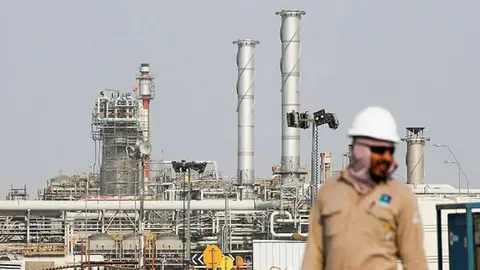Israel, why now?

Since British soldiers left Palestine on 14 May 1948, David Ben-Gurion declared in Tel Aviv on that day the creation of the State of Israel, an announcement that was supported by the United States. This sparked a series of wars with neighbouring countries seeking to defend the Palestinians living in their land of Palestine from Jewish invasion.
The Middle East was never the same after the formation of the state of Israel and the Palestinians embarked on a series of international terrorist attacks to draw the attention of the authorities and major powers.
Key to this process, which is now approaching a century of devastation, have been: the 1948 War; the Suez War; the Yom Kippur War; the peace process with Egypt; the war with Lebanon; the first and second Intifadas. In 1978, at the Camp David Accords, brokered by the United States under President Jimmy Carter, both Egypt and Israel signed peace in the territorial disputes between the two countries.
Then came the Abraham Accords, sponsored by the then US president, Donald Trump, who among other things decided to move the US embassy from Tel Aviv to Jerusalem, violating the so-called Two State Solution that would give the Palestinians the creation of the country of Palestine and the part of East Jerusalem as its capital. Trump ignored it and Israel has never complied.
With the Abraham Accords, Israel began a campaign of re-establishing relations to improve its neighbourhood: it established diplomatic relations with the United Arab Emirates, Bahrain, Sudan and Morocco. It also established diplomatic relations with Turkey in August 2022, although Turkish President Recep Tayipp Erdogan has already declared that Israel must stop its ruthless and bloody offensive against a harmless population that has been oppressed by Israel for decades.
Israel, mediated by the US, is negotiating the establishment of diplomatic, economic and trade relations with Saudi Arabia. Talks are at an advanced stage, although recent events could put them on hold. Israel, Saudi Arabia and Iran are all vying for control of the Middle East.
This terrorist operation carried out by Hamas is seen in Europe as suicide and an action that, above all, benefits Iran (with a Shiite majority), Israel's traditional enemy, which, despite renewing its relations with Saudi Arabia (with a Sunni majority) after China's mediation, would not look favourably on a Saudi-Israeli alliance.
On the subject
However, despite all this evidence, I try to reason why Hamas would carry out such a savage and ruthless terrorist operation without considering that the Israeli government's response would be equally savage and ruthless. And, moreover, on the assumption that Israel has one of the best prepared and equipped armies in the world.
For decades, the Palestinians' struggle to regain their land (and not keep losing more and more hectares) has been a David versus Goliath confrontation.
Would Hamas forget that this would unleash a war in which not only are thousands of innocent Palestinians losing their lives, but they are on the verge of losing Gaza and Israel annexing more territory? There is a certain sense of illogicality that makes me think that there is a powerful force behind what has happened that is more interested in unleashing a war in the Middle East using Hamas as bait.
Who benefits from all this? Not Hamas, not the Palestinians, not the future of the Gaza Strip. It benefits those dark forces that seek to prevent regional peace and good neighbourliness in the Middle East at all costs.
In fact, it gives Prime Minister Benjamin Netanyahu himself an advantage: in the wake of the unfortunate events he managed to form a unity government by bringing in opposition member Benny Gantz with whom he agreed to establish an emergency government and a war management cabinet.
Netanyahu has governed Israel six times in different periods and has managed to consolidate the most conservative and right-wing government in Israel's history; he has even managed to put aside the corruption scandals that haunt him and the controversy over his most recent reform of the judicial system.
For the time being, no bills can be pushed through in Israel and no government decisions can be taken that are not linked to the conflict with the militias. The war management cabinet is composed of Netanyahu, Gantz, the current Defence Minister Yoav Gallant and Strategic Affairs Minister Ron Dermer; only Yair Lapid, another member of the opposition, has yet to join.
And Russia also benefits collaterally, because a new war, this time in the Middle East, provides Putin with a distraction for the United States, the European Union (EU) and NATO, which will be less able to deal with Russia's invasion of Ukraine. Of course, there are many losers here: the Palestinians first and the Europeans second, who are once again at the forefront of terrorist attacks and, if Egypt opens its borders and accepts refugees, we cannot rule out a wave of Palestinians at the gates of Greece or Italy. Things could get even worse for Europe if a new war breaks out between Armenia and Azerbaijan... let's face it, the expansion of the conflict is unmistakably World War III.



